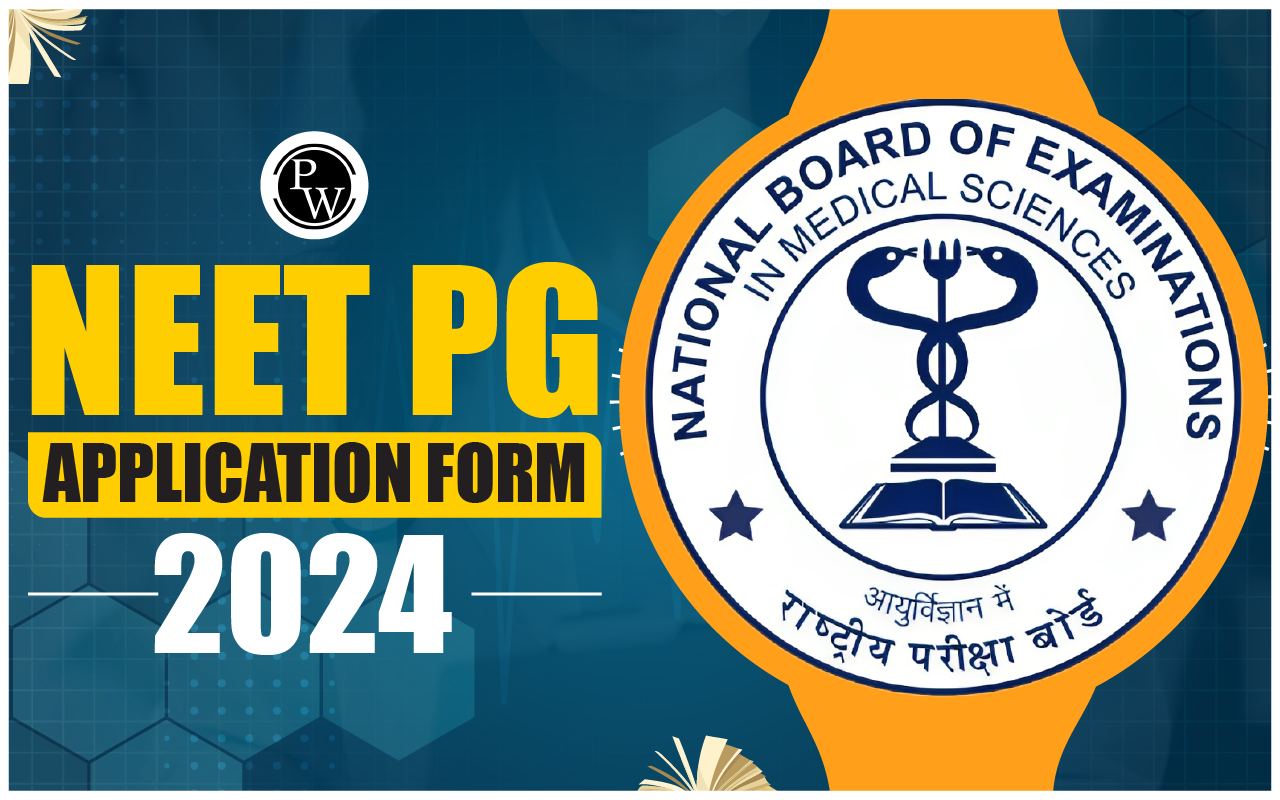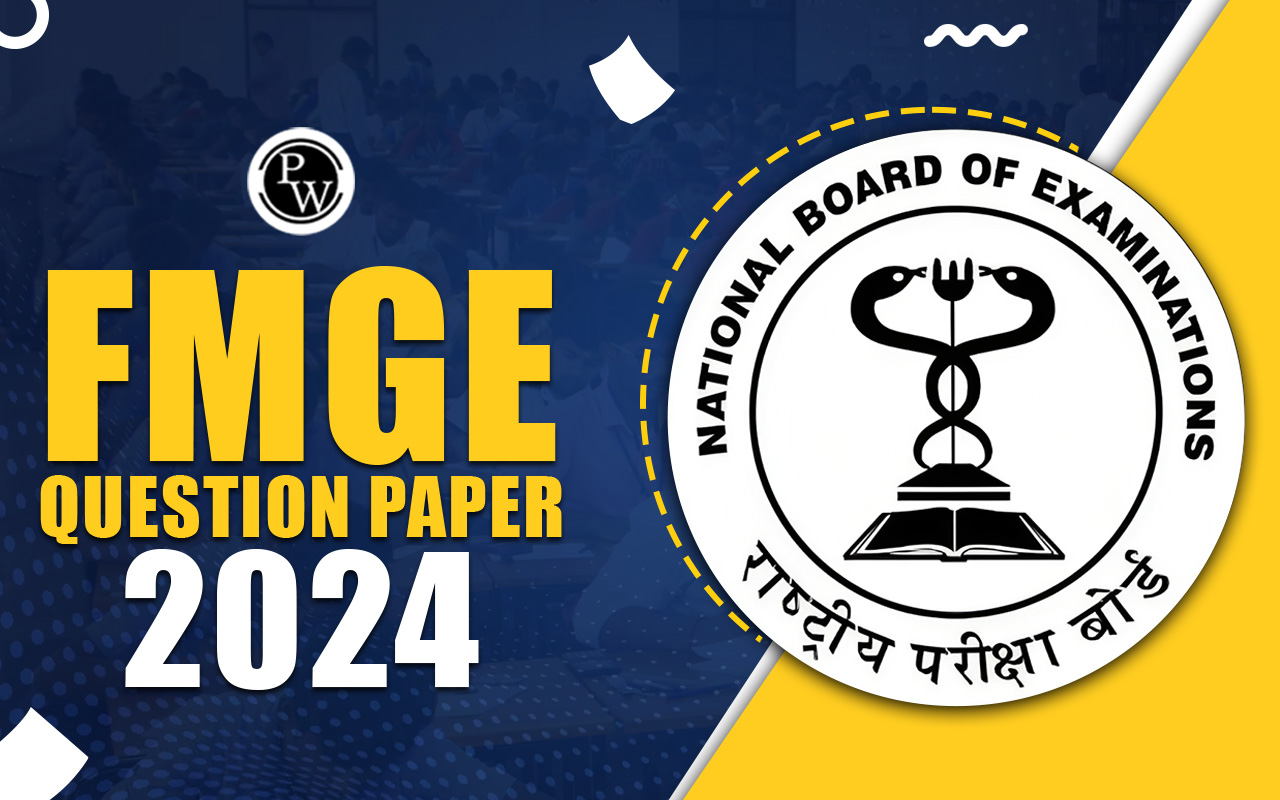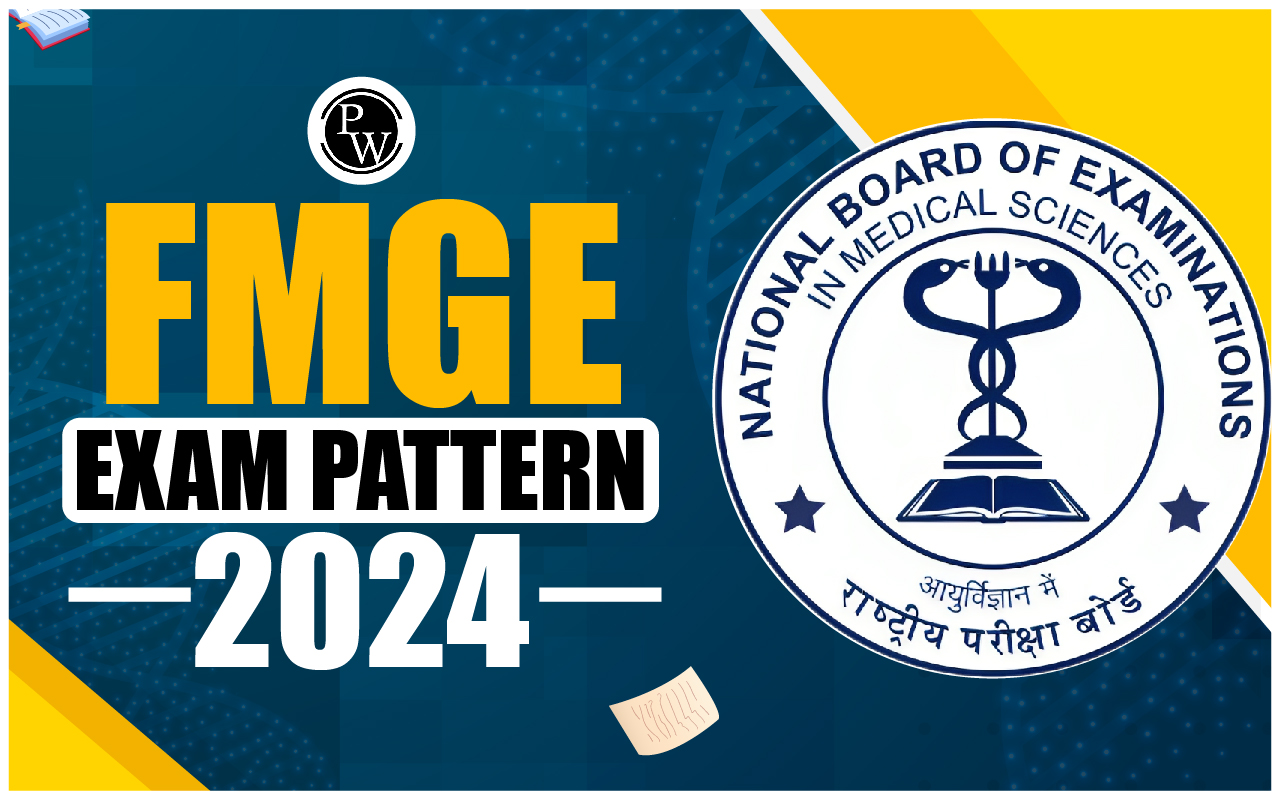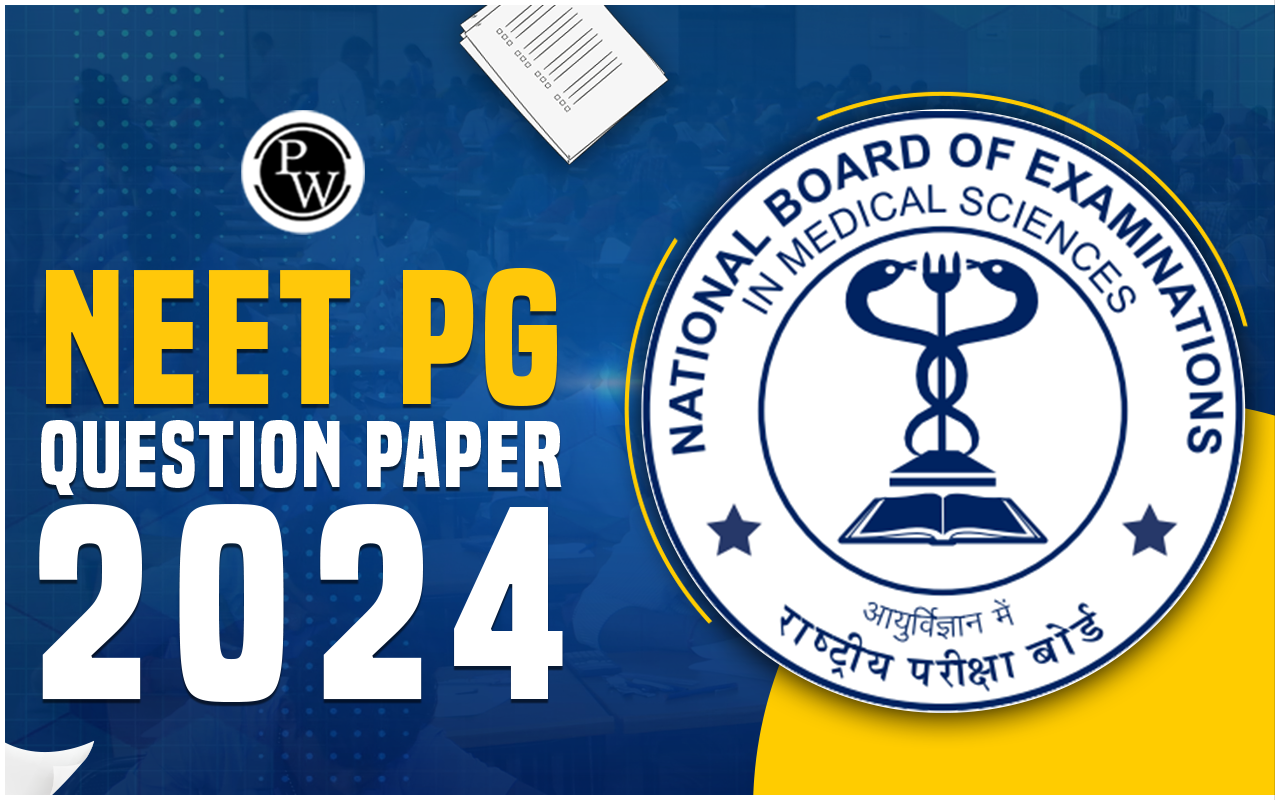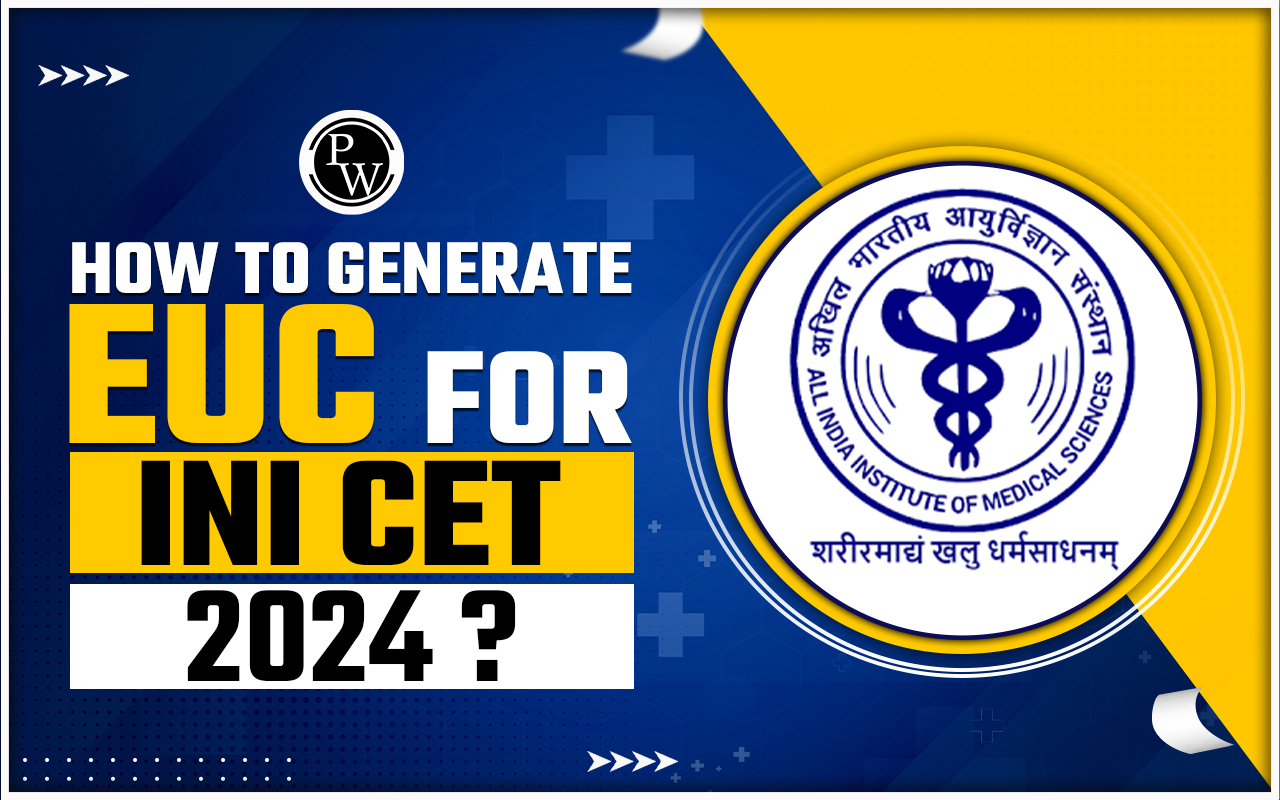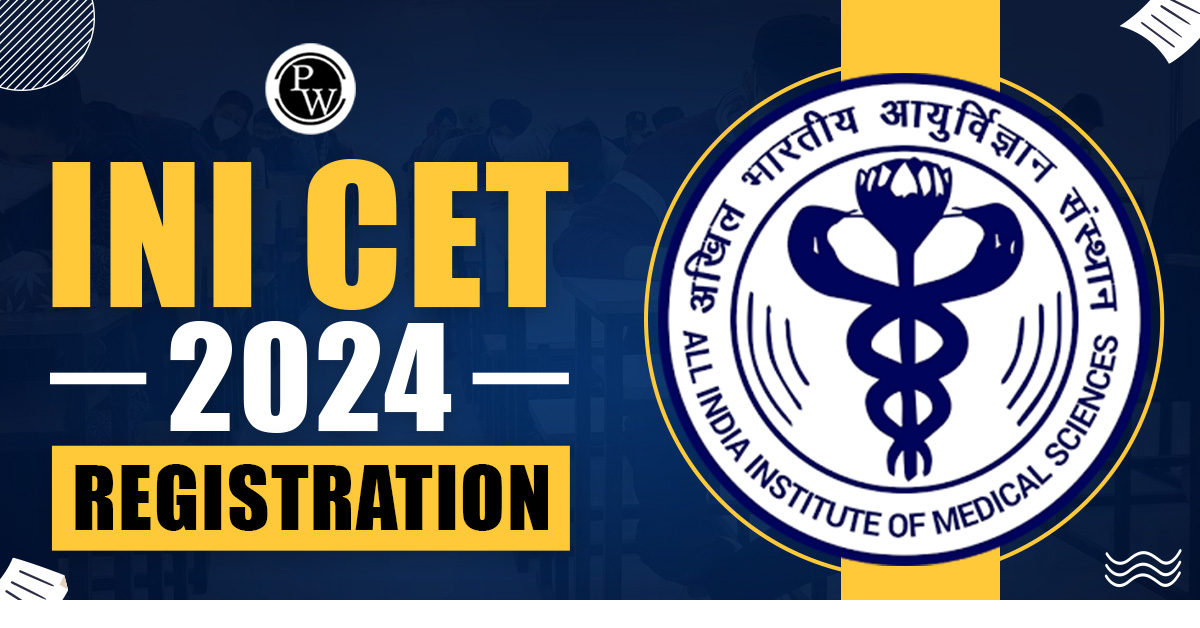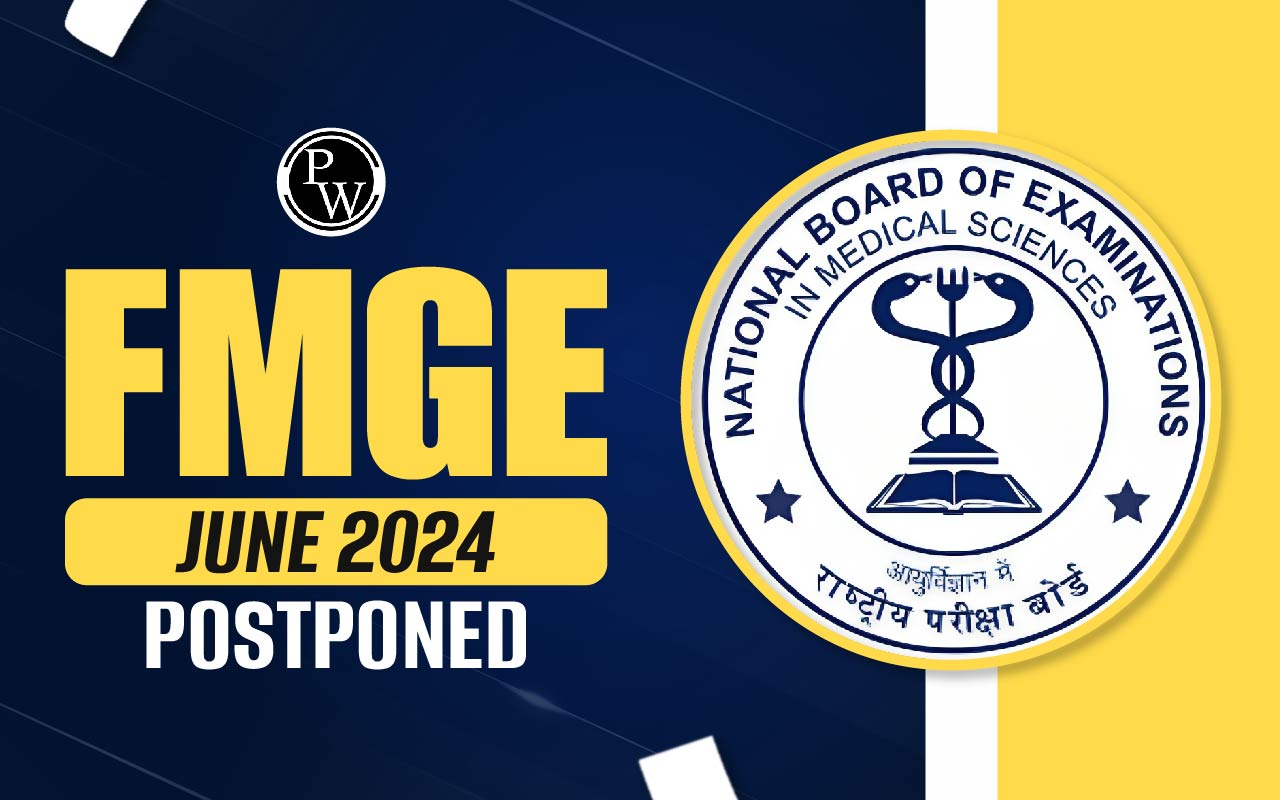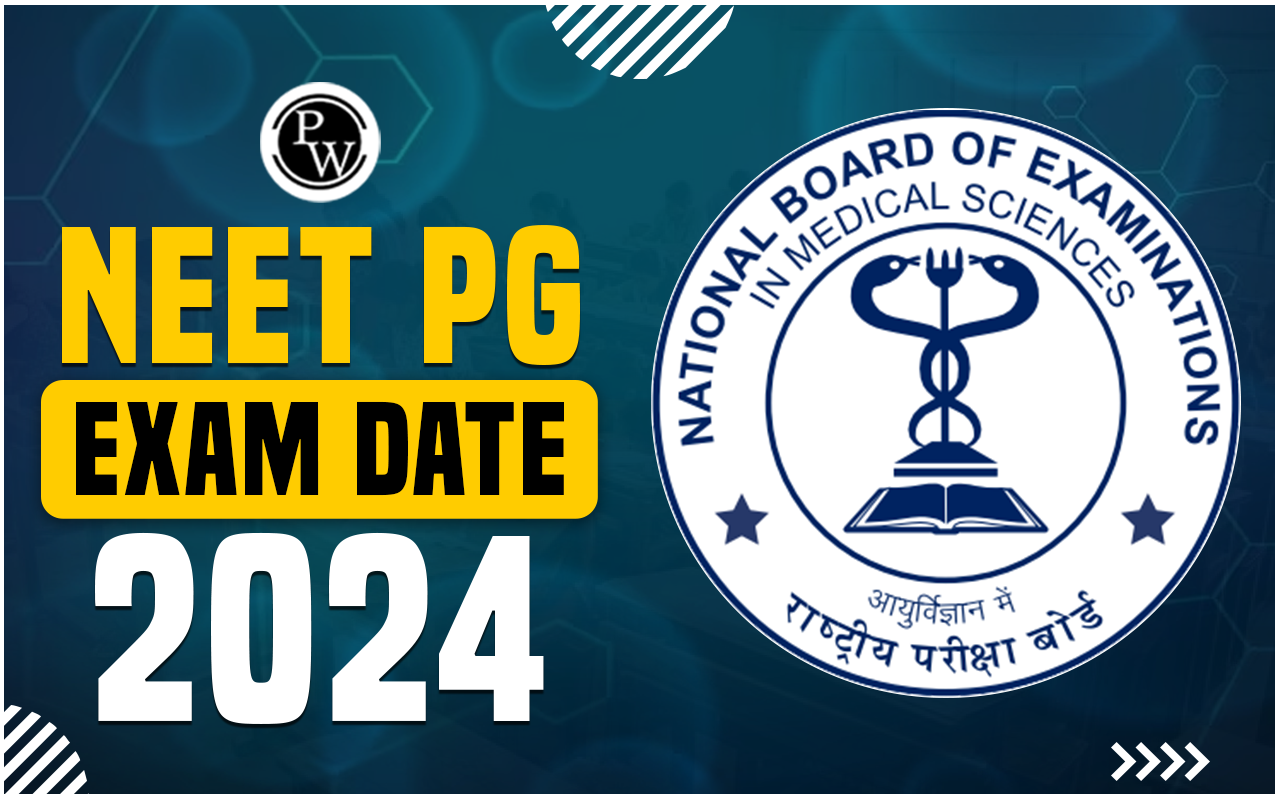
The FMGE exam pattern 2024, crafted by the NBE, details crucial aspects like mode, duration, and question structure. Candidates must download their FMGE 2024 admit card on July 3, 2024 , and can now familiarize themselves with the exam through the demo test. Scheduled for July 6, 2024, this year's exam introduces time-bound sections in each part of the question paper, emphasizing strict adherence to section-specific timings and no review of answers post-section completion.
FMGE Exam Pattern 2024 Highlights
FMGE exam pattern 2024 has been announced by the concerned board. As per that, there are two sections sections A and B. The exam will be held in online mode with questions asked from the MBBS syllabus. Here are the major highlights associated with the FMGE exam pattern.| FMGE Exam Pattern 2024 Highlights | |
| Particular | Detail |
| Mode of the examination | Online |
| Medium | English only |
| Total number of questions | 300 |
| Total Questions from Clinical Subjects | 200 |
| Total Questions from Para-Clinical Subjects | 100 |
| Type of questions | MCQ |
| Negative marking | No |
| Sections | Part A Part B |
| Duration of the examination | 5 hours (2 hour and 30 minutes for each section) |
| FMGE Passing Marks | 150 marks |
FMGE Exam Pattern 2024 Detailed
FMGE Exam Pattern 2024 guides candidates in their preparation journey by familiarizing them with the requirements of the exam. Candidates aspiring to clear the FMGE June 2024 exam must know the latest FMGE exam pattern. FMGE exam pattern gives an idea of the total of subjects covered, questions asked, type of question paper, and more. Here is the detailed information on the pattern of the FMGE exam as per the latest notification:- There are a total of two parts, Part A and Part B in the FMGE question paper.
- The question paper is in multiple-choice type (MCQ) type format.
- There are 300 questions in the FMGE examination which are equally distributed among Part A and Part B.
- Each question each worth one mark and there is no negative marking.
- The total time allotted to solve questions is 5 hours.
- This total time is divided equally as 2 hours and 30 minutes for both shifts.
- Questions asked in the FMGE question paper are derived from the topics of the MBBS course.
- Candidates must score 150 marks out of 300 to be eligible for the FMGE pass certificate.
FMGE Marking Scheme 2024
The competent authorities have announced the FMGE marking scheme for all the questions asked in the exam. As per that, 1 mark will be awarded for each correct answer marked by the candidate. Similarly, no marks will be deducted if the questions are answered wrong or left unattempted.| FMGE Marking Scheme | |
| Particulars | FMGE Marking Scheme |
| Correct answer | 1 mark will be awarded for every correct answer |
| Incorrect answer | No negative marking |
| Unanswered Questions | No negative marking |
FMGE Syllabus 2024
FMGE syllabus is prescribed by the MCC as per the Graduate Medical Education Regulation. The candidates preparing for the exam have to adhere to the subject-wise syllabus to maximize scores in the exam. All the topics prescribed for the FMGE syllabus can be checked in the table below.| FMGE Syllabus 2024 | |
| Subject | Syllabus |
| Anatomy | General Anatomy: Basic tissues to the body, Terminology, and Nomenclature Elements of Anatomy: Osteology, Arthrology, Myology, Angiology, Neurology Regional Anatomy: Upper limb, Lower limb Thorax-including diaphragm Abdomen and Pelvis, Head, Neck Brain, and Spinal cord Embryology: Development of individual organs and systems, postnatal growth & development Histology: General Histology |
| Physiology | General Physiology Body fluids - Blood Nerve and Muscle Gastrointestinal Tract Kidney Skin and Body temperature Endocrine Glands Reproduction Cardiovascular System Respiratory System Central Nervous Systems Special Senses |
| Biochemistry | Cell and Sub-cellular structures Hydrogen Ion concentration Acid, Bases, Buffers, Handerson-Haselbach equation Isotopes and their Application Carbohydrates Amino Acids, Peptides and Proteins Lipids Nuclear Acids Enzymes Vitamins Biological Oxidation Digestion and Absorption from GI Tract Intermediary Metabolism Carbohydrate Metabolism Lipid Metabolism Protein and Amino Acid Metabolism Purine and Primidine Metabolism Minerals Biochemical Genetics and Protein Biosynthesis Tissue Biochemistry Liver Functions Nutrition and Energy Metabolism |
| Pathology | Cell injury Inflammation and Repair Immunopathology Infectious diseases Circulatory disturbances Growth disturbances and Neoplasia Nutritional and other disorders Genetic disorder Haematology Cardiovascular Pathology Respiratory Pathology Pathology of Kidney and urinary Tract Hepato-Biliary Pathology Lymphoreticular System / Spleen Reproductive System (male & female) Diseases of the Breast Musculoskeletal System Endocrine pathology Neuropathology Dermato-Pathology Ocular Pathology |
| Microbiology | General Microbiology Immunology Bacteriology General Virology Systemic Virology Mycology Parasitology Clinical / Applied Microbiology |
| Pharmacology | General Pharmacology Autonomic Nervous System Cardio-vascular System Diuretics Drugs affecting blood and blood formation Autocoids and related drugs Respiratory System Gastro-intestinal System Endocrine pharmacology Central Nervous System Psychopharmacology Drugs in Anaesthetic practice Chemotherapy Toxicology Clinical Pharmacology and Rational drug use |
| Forensic medicine | Medical Certifications & medico-legal reports including dying declaration Death Changes after death Inquest by police, magistrate and coroner Identification Examination of mutilated human remains Medico-legal autopsies Mechanical injuries and wounds Examination of an injury case Injuries due to physical agents & their medico-legal importance Asphyxial death Death due to malnutrition, neglect battered babies Dowry death Virginity, sexual offences, sexual perversions Legitimacy Pregnancy and delivery |
| General surgery | Hemorrhage and shock Fluid, electrolyte and Acid balance, nutrition Skin tumours, burns, skin grafting Arterial diseases Venous diseases Lymphatic and Lymph nodes Wounds Specific and non-specific injections Tumors, Cysts, Ulcers and Sinuses and Fistulae Infections of Hand and Foot Diseases of muscle, tendons, bursae and fascia Hernia Umbilical granuloma, fistula, adenoma Abdominal Wall Face, Teeth, Gums, Mouth, Tongue, Salivary glands, Neck Thyroid Glands, Thyroglossal Tract and Endocrines Breast Sympathetic System |
| Anesthesia | Anatomy of upper airway Physiology of Respiration O2/CO2 transport. Methods of oxygen therapy. Pre-operative evaluation/pre-medication Anaesthetic agents, stages of Anaesthesia Principles and mechanism of administration of general anaesthetics, balanced Anaesthesia IPPV, Endotracheal Intubations Muscle Relaxants 8. Spinal/Epidural Anesthesia Local Anesthesia Cardiopulmonary resuscitation basic, use of simple ventilators Monitoring ICU, the role of anaesthesiologist in ICU Shock |
| Orthopedics | Traumatology Injuries of bones and joints Injuries of Lower Extremity Injuries of the Spine Vascular Injuries Cold Orthopedics Regional Conditions Neuro-Muscular Disorder Bone and Joint Tuberculosis |
| Radiodiagnosis | Respiratory System Cardiovascular System Gastrointestinal System Obstetrics and Gynaecology Skeletal System Central Nervous System Excretory System |
FMGE Exam Pattern 2024 Subject-wise Distribution of Mark
FMGE exam pattern 2024 is going to have questions from two sections, Clinical and Paraclinical subjects. The clinical subject will have 200 questions and the paraclinical will have 100 questions. FMGE exam will be held in two sessions and hence candidates should be well versed with the chapter wise weightage for effective exam preparations.FMGE Clinical Subject Weightage
Here is the detailed chapter wise weightage for FMGE Clinical subjects as per the FMGE Exam Pattern:| FMGE Clinical Subject Wise Weightage | ||
| Subject | Number of Questions | |
| Medicine and allied subjects | Medicine | 33 |
| Psychiatry | 5 | |
| Dermatology and STD | 5 | |
| Radiotherapy | 5 | |
| General Surgery and allied subjects | General Surgery | 32 |
| Anaesthesiology | 5 | |
| Orthopaedics | 5 | |
| Radiodiagnosis | 5 | |
| Paediatrics | 15 | |
| Ophthalmology | 15 | |
| Obstetrics and Gynaecology | 30 | |
| Community Medicine | 30 | |
| Total | 200 | |
FMGE Paraclinical Weightage
Here is the marks distribution for FMGE Paraclinical weightage for all the subjects as per the FMGE Exam Pattern.| FMGE Paraclinical Weightage | |
| Subject | Number of Questions |
| Anatomy | 17 |
| Physiology | 17 |
| Biochemistry | 17 |
| Pathology | 13 |
| Microbiology | 13 |
| Pharmacology | 13 |
| Forensic Medicine | 10 |
| Total | 100 |
FMGE Exam Pattern 2024 FAQs
What type of questions are asked in FMGE?
FMGE examination has most of the questions multiple choice-based questions.
What is the FMGE exam pattern for 2024?
As per the FMGE exam pattern, the exam will be held online mode for 300 questions.
What is the distribution of questions in FMGE?
The FMGE exam has two sections, section A and section B. Each section has 150 questions and 2 hours and 30 minutes are allotted per section.
Is there any negative marking in the FMGE exam?
No, there is no negative marking in the FMGE exam.
🔥 Trending Blogs
Talk to a counsellorHave doubts? Our support team will be happy to assist you!

Free Learning Resources
PW Books
Notes (Class 10-12)
PW Study Materials
Notes (Class 6-9)
Ncert Solutions
Govt Exams
Class 6th to 12th Online Courses
Govt Job Exams Courses
UPSC Coaching
Defence Exam Coaching
Gate Exam Coaching
Other Exams
Know about Physics Wallah
Physics Wallah is an Indian edtech platform that provides accessible & comprehensive learning experiences to students from Class 6th to postgraduate level. We also provide extensive NCERT solutions, sample paper, NEET, JEE Mains, BITSAT previous year papers & more such resources to students. Physics Wallah also caters to over 3.5 million registered students and over 78 lakh+ Youtube subscribers with 4.8 rating on its app.
We Stand Out because
We provide students with intensive courses with India’s qualified & experienced faculties & mentors. PW strives to make the learning experience comprehensive and accessible for students of all sections of society. We believe in empowering every single student who couldn't dream of a good career in engineering and medical field earlier.
Our Key Focus Areas
Physics Wallah's main focus is to make the learning experience as economical as possible for all students. With our affordable courses like Lakshya, Udaan and Arjuna and many others, we have been able to provide a platform for lakhs of aspirants. From providing Chemistry, Maths, Physics formula to giving e-books of eminent authors like RD Sharma, RS Aggarwal and Lakhmir Singh, PW focuses on every single student's need for preparation.
What Makes Us Different
Physics Wallah strives to develop a comprehensive pedagogical structure for students, where they get a state-of-the-art learning experience with study material and resources. Apart from catering students preparing for JEE Mains and NEET, PW also provides study material for each state board like Uttar Pradesh, Bihar, and others
Copyright © 2026 Physicswallah Limited All rights reserved.

